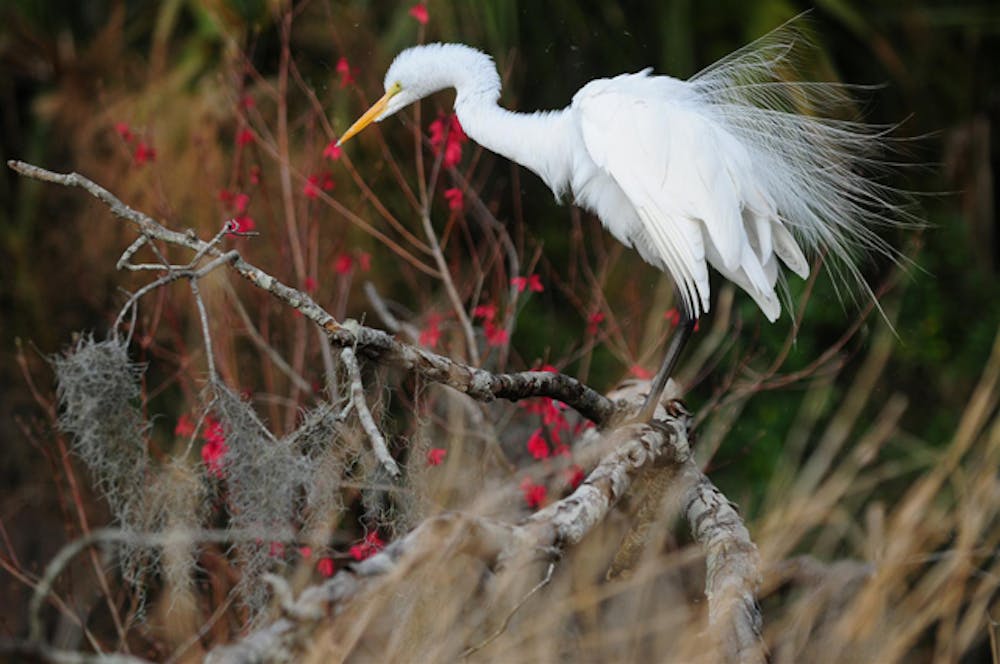Fewer migratory birds are able to keep up with global temperature increase, something observed by two researchers at the Florida Museum of Natural History.
A group of researchers from various universities around North America, including Stephen Mayor and Robert Guralnick from UF, began a project to discern the effects of climate change on migratory birds.
The early arrival of spring threw off the migratory patterns of nine out of 48 songbird species they were studying, according to their research.
Mayor, a post-doctoral researcher at the museum, said warmer temperatures cause plants to put out new leaves, a process known as the green-up. This then leads to spring-like conditions well before winter is over, which Mayor said is causing declines in bird populations across the continent.
“One of our concerns is that the increasing mismatch between the birds and their environments will cause populations to decline,” Mayor said.
The research also notes that the green-up is only occurring in the eastern portion of North America, which still leads to decreasing bird reproduction, Mayor said.
“We were surprised to see, at least over this time period of 2001 to 2012, that in much of western North America spring was arriving later,” Mayor said. “The birds were also arriving later, but again, weren’t keeping up with that pace of change.”
The data used in the study came from birders from the U.S. and Canada, citizens who record the birds they see in their area. Birders will post their observations on ebird.org, a website that collects data regarding bird activity. Researchers were able to reach their conclusions by utilizing the data collected by this website, Mayor said.
Decreased bird populations could also have an effect on humans, Mayor said. He pointed out that without migratory songbirds, going outside would be a very different experience.
“It’ll feel like spring is here, but there will be potentially fewer birds singing, because many of them will not have arrived from the wintering grounds,” he said.
Guralnick, who worked with Mayor on the project, noted that lower migratory bird populations will lead to an imbalance in the local food chain.
“If the birds are gone, the insect populations will be less regulated, and that could mean some bad things for ecosystems generally,” Guralnick said.
According to Mayor and Guralnick, there are two things people who want to help migratory birds can do. The first is planting native plants in lawns and gardens, which provide the best habitat for migratory birds native to the area.
The second is taking up bird-watching to help researchers keep track of bird populations’ migration patterns.
“Learn birds in your backyard and support the work that many people are doing to protect bird species and to create habitats for species,” Guralnick said. “Just having awareness of issues is a great start, and it leads to people who care if our woods have birdsongs in them or not.”
Contact Adam Turner at aturner@alligator.org and follow him on Twitter: @fladam98.






